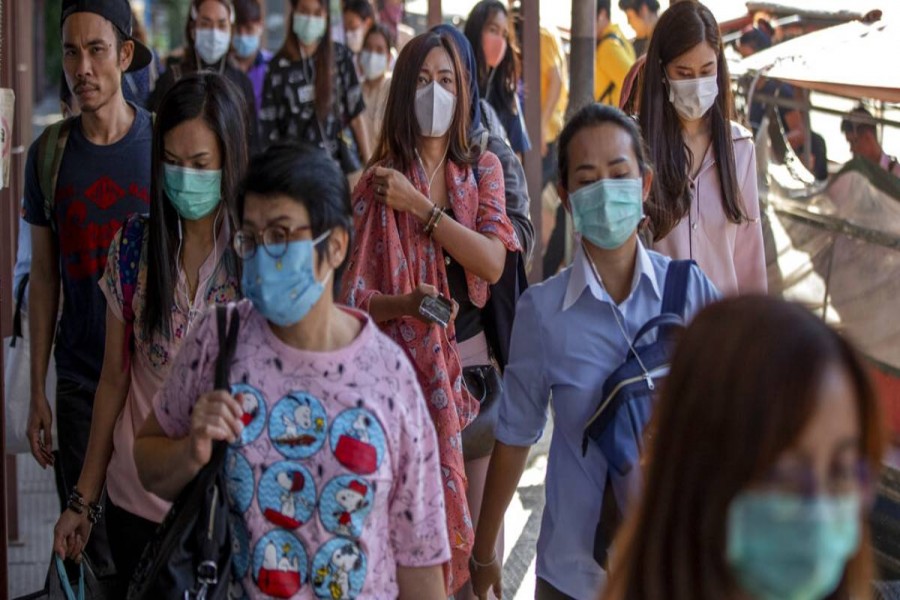As the controversy over effectiveness of mask in protecting a wearer from coronavirus contamination is yet to be over, the handy face protector has turned out to be most sought-after of late. The more conscious segment of society started wearing surgical or other reusable varieties of this protective gear ever since the capital city had made disturbing news about heavy dust pollution.
In the early days, people looked askance at mask users. The public thought that there was an ulterior motive behind hiding the face. Particularly in the aftermath of the Holey Artisan Bakery attack by militants, it was not unnatural for people to invent a lurking jinni in almost anything shrouded in mystery or disguise. Criminals use both camouflage and alibi in order to commit crime and pass the responsibility on to others.
So this hygienic face protector had to overcome negative public attitude initially and air pollution of Dhaka and other cities gave it gradual acceptance and approval. But it was not until the news of coronavirus attack of three compatriots got circulated that the demand for masks soared sky-high. Whatever may be the opinion of physicians, common sense dictates that in public space, masks play quite a useful role. Suppose a coronavirus patient wears a mask and sneezes, a mask at least does not allow the droplets to spread in the air around. That is quite a remarkable public service. Even a wearer can get some initial protection when droplets in the air are stopped entry into the nostrils.
Panic buying of masks, liquid hand-wash and sanitizer also gripped city leading to abnormal price hike of these items. In some countries including the United States of America (USA), toilet and tissue paper along with sanitizer have vanished from the market with people storing those out of fear that the items may be in short supply if the authorities announce a sudden lockdown. Mercifully, in Bangladesh the crisis of such materials could not prevail long with timely interference by the authorities. Masks are priced higher still but the supply too is abundant. Local manufacturers seem to have worked overtime to more than match the demand.
Admittedly, more and more people in cities and towns are hiding behind the mask. However here is a masquerade they have not opted for like the protagonists -both criminals and smart private investigators -do in a detective story. A virus has forced people to be on the defence. Unwittingly urbanites have been compelled to wear a protective gear and adopt several other emergency practices and measures to keep the virus at bay. After all, here is a fatal foe that has caused a global pandemic, according to the World Health Organisation.
However, one thing that goes missing amid so much chaos and confusion is that viruses like this more often than not attack crowded urban centres and spare villages. Even dengue that gave a nightmarish time to the capital city last time is an urban-centric disease. This is despite the fact that a few cases were reported from rural areas for the first time. An urban centre is more artificial with its factories, industries, high-rises and few trees and green covers than villages where natural balance with many of Nature's gifts is maintained well. Gone are the days when cholera and malaria laid waste of human settlements in rural areas. Why? Because, there has been a phenomenal improvement in hygiene with sealed latrines and deep tube-wells taking a decisive role in warding off the threat of diarrhoea. Also, breeding places for mosquitoes have become scarce in villages.
So, here is a lesson for the urbanites. The cage life that city people have chosen at the cost of natural setting is exacting a heavy price. Let cities have at least 20-25 per cent green cover and the roadsides shaded by indigenous trees. Much of the modern affliction will not invade life on such a scale. Save the environment to save human civilisation.


